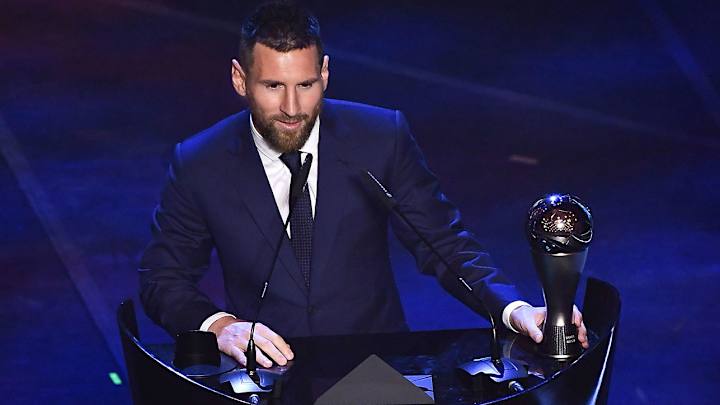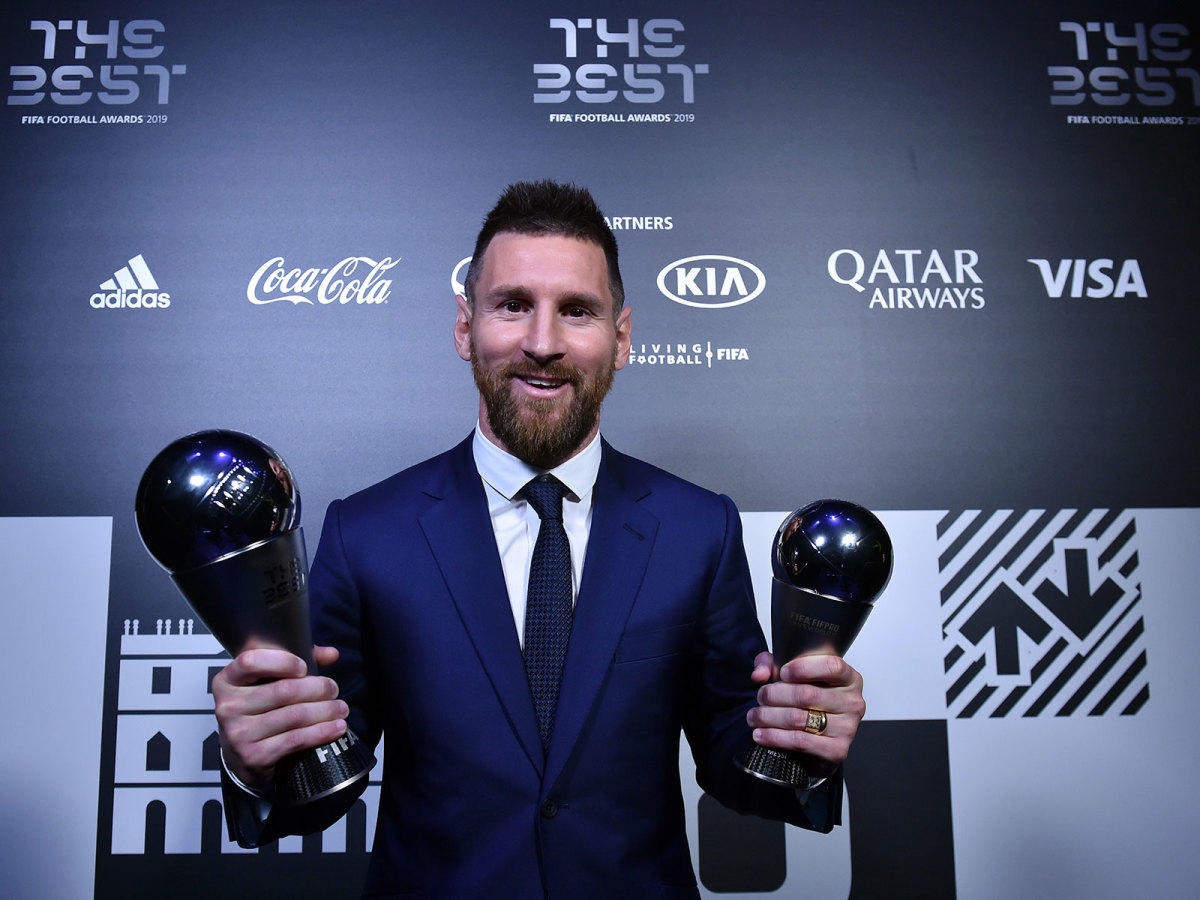What Does FIFA's Best Player Award Really Even Recognize?

So the award for FIFA's Best Men’s Player of the Year was won by Lionel Messi, his first success, remarkably, in this iteration of the honor, although his sixth in the various World Player of the Year awards organized by the world’s governing body. For those who care, and the suspicion is that Messi cares rather less than many of his fans and his great rival, that makes him the most successful player in the award’s history.
If there is significance, it is that after last season’s Luka Modric interruption, the duopoly continues. Messi and Cristiano Ronaldo have, between them, won 10 of the last 11 such awards. Their era goes on, and that matters largely because it’s so unclear what happens when they are gone–and not even they can last forever. Messi is 32 now and Ronaldo is 34. They have, between them, changed the perceptions of what is possible in the sport, in part because of their extraordinary ability, and in part because of a financial system that has ensured an agglomeration of talent at the top end of the game. Messi’s success, in a sense, is indicative of the reluctance if the football world to move on and to contemplate what may follow.
That these awards exist, that they have proliferated and that they are reported upon with such craven attention is indicative of much that is wrong with modern football: The focus on celebrity, the vacuous promotion of the individual in a team game, the desire to create content beyond football and promote it not merely as the sport it has successfully been for more than a century and a half but as some part of a wider entertainment package.
If these awards have any value–let’s pretend they do for the sake of the discussion–it lies in meeting the criteria laid out by FIFA. Oddly, given the name of this award, it’s not actually about who has been the best player. We are not judging here who would be the first name on the team sheet to face a putative XI from Mars. Voting, FIFA states, is to be “based on their respective achievements during the period 16 July 2018 to 19 July 2019.”
This at least seems clear. But then Article 3 of the rules says, “The awards are bestowed according to on-field performance and overall behavior on and off the pitch,” which seems rather different–and some may argue that the off-pitch aspect should discount Ronaldo entirely. Even FIFA, it seems, isn’t really sure what the award is for. Of course it doesn’t. The award, after all, isn’t really about recognizing anything. It’s about having something to justify a glitzy ceremony that plumps the egos of the winners and of the executives who get to spend an evening in the same room as them.
On the former criterion, Virgil van Dijk absolutely deserves his place. He was exceptional as Liverpool won the Champions League and finished second in the Premier League with a record number of points for a runner-up. It was his arrival that sparked the improvement in Liverpool’s defensive form. He also played a key role in the resurgent Netherlands reaching the final of the UEFA Nations League.

But Messi and Ronaldo seem there by force of habit. Ronaldo, it’s true, did win trophies in that time frame, picking up a scudetto and helping Portugal to the Nations League title. But he was far from decisive in Juventus’s eighth successive Serie A win, a trophy taken so much for granted that Max Allegri was eased from his post as manager after winning five in a row because his side was outrun and outplayed by Ajax as it went out of the Champions League in the quarterfinals.
Ronaldo was part of Portugal's Nations League-winning side, but then, so too–and arguably more influential–was Bernardo Silva, who was superb as Manchester City won the Premier League. His neat excellence and unselfish on-field intelligence, though, perhaps don’t meet the celebrity requirements.
Messi’s inclusion–though he did lead La Liga and the Champions League in scoring–was baffling, his victory faintly absurd, although not as absurd as the fact he only came fifth in last year’s Ballon d’Or voting. There were flashes of excellence from him, of course, as Barcelona won a league title against minimal opposition. He was brilliant in the first leg of the Champions League semifinal against Liverpool. But in the second leg his increasingly detached style was in part responsible for Liverpool’s comeback, just as Ronaldo’s refusal to do anything but the most cursory defensive work was one of the reasons Ajax could be so dominant against Juve. Nor did Messi do much with Argentina in the summer, as its perennial underperformance went on at Copa América. But the individual must be celebrated.
But Messi wins because ... well, why? Because he played well in the first leg of the semifinal? Because it suits FIFA to have probably the greatest player of all time win its award before he fades to retirement? Because defenders never win such things anymore?
Who knows?
Who cares?
